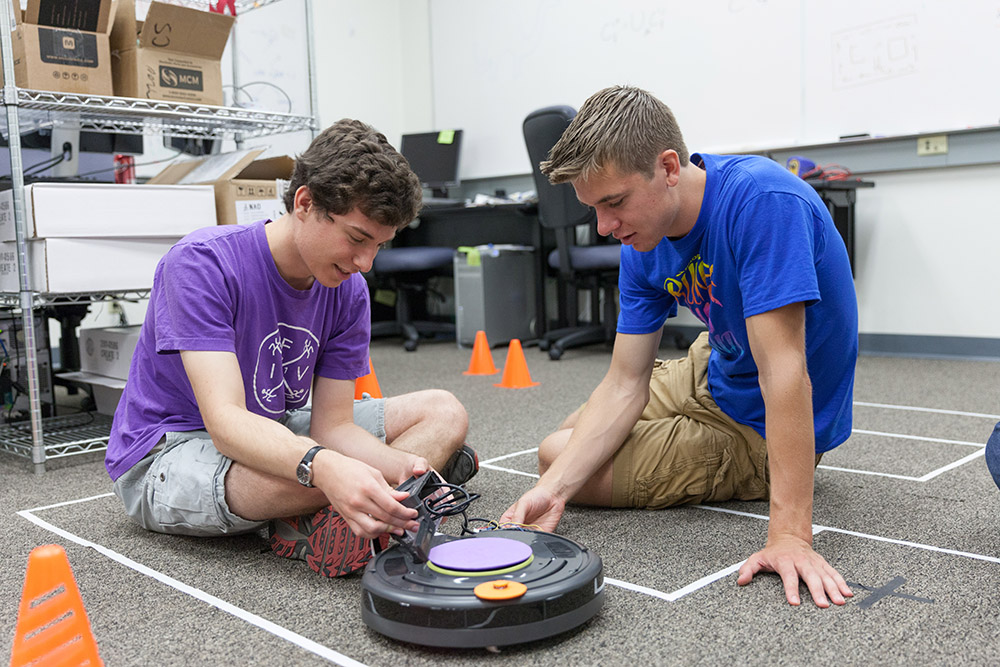Robot Researchers Invited to AI Conference
December 15, 2015
Human-robot teaming affects our daily lives in increasing ways—from cars that park themselves to apps that remotely control home appliances. Two Harvey Mudd College student research teams studying human-robot teaming have had abstracts accepted to the 2016 Association for the Advancement of Artificial Intelligence (AAAI) Conference Feb. 12–17 in Phoenix, Arizona.
The students are members of the Computer Science Department’s HEATlab, which seeks to create new techniques for human-robot teaming—the flexible navigation and coordination of complex, interrelated activities in shared spaces. To this end, the lab members are working on several projects, including Robot Brunch, which explores what it takes for multiple robots to schedule robust interactions in the messiness of the real world. Another project called Human Robot Trust explores why humans trust robotic teammates differently than human teammates in hopes of planning more fluid and intuitive human-robot interactions.
Juniors Sam Dietrich and Kyle Lund, who work on the Robot Brunch project, co-authored one of the accepted abstracts, “Robust Execution Strategies for Probabilistic Temporal Planning,” which considers scheduling scenarios in which robots must collaborate to complete a task (e.g., robotic agents working together in a furniture factory to apply finish to custom table pieces). The students developed algorithms for finding plans that are more likely to be successful.
Also accepted to the AAAI-16 Conference, “Trust and Cooperation in Human-Robot Decision Making” is co-authored by Erin Paeng ’17 and Jane Wu ’18 of the Human Robot Trust team. The authors explore how people trust and cooperate differently with robots than with humans in a game-theoretic framework, focusing on how quickly and how much trust is developed in these interactions. Both projects carry broad implications for real-world human-robot interaction (HRI) applications, says Jim Boerkoel, assistant professor of computer science and HEATlab director.
“Scheduling robust interactions among teams of robots is becoming increasingly important,” explains Boerkoel. One example he cites: Amazon employs over 30,000 pallet-moving robots that are tasked daily with coordinating their movements through crowded warehouses in order to deliver packages in time for the holidays.
Boerkoel also emphasizes the importance of human-robot trust in our daily lives.
“Whether it be vacuuming their home, setting their thermostat or parallel parking their car, people have been increasingly trusting automated technologies to perform tasks on their behalf,” says Boerkoel. “For robotics to be effective, we need to know how, when and why people trust robots to make decisions for them.”
The abstracts are a result of the Computer Science Department’s 10-week summer undergraduate research program. The Harvey Mudd projects were reviewed by AAAI along with those from top CS PhD programs from around the world.
“It’s truly impressive what these students have been able to accomplish in such a short period of time,” says Boerkoel.
